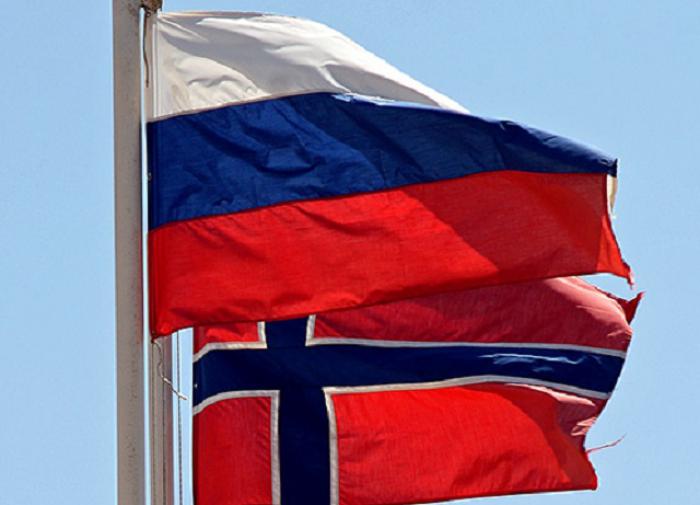Norway dares to say 'No!'
Norway, under the new government, is sending signals to its NATO allies about the need to revise its position in relation to Russia. What are the reasons behind Oslo's stunt?

Norwegian Foreign Minister Anniken Huitfeldt, who assumed office in October 2021, said that NATO's military presence in surrounding areas was important for Norway, but as for the immediate vicinity of the Russian border, Norway would rather tackle the problem itself, with the help of Norwegian aircraft and frigates.
"It is important for Norway to be militarily present in our immediate surroundings. But very close to the Russian border, we believe that we do it best ourselves, with Norwegian planes and Norwegian frigates. It is fundamental for us,” she told Norwegian newspaper Verdens Gang.
We have to admit here that the statement that Norwegian official made amid another wave of anti-Russian hysteria at the NATO summit in Riga, is worthy of respect.
Norwegian analyst Tormod Heier said that while Russia remains a strategic competitor for the United States, Norways sees Russia as a legitimate and natural cooperation partner in the same area in which the Americans want to deter Russia.
Norway's "we-do-it-best-ourselves" move is based on the following reasons:
1. A "pro-Russian party" came to power
Huitfeldt represents the Norwegian Workers' Party that won* the 13 September parliamentary elections. It is clear even from the name of the party that it will shift the balance point towards dialogue and cooperation with Russia regarding the position, which the previous government chaired by Erna Solberg, a conservative, was balancing upon.
Huitfeldt is not an amateur politician at all. She previously chaired the Foreign Affairs and Defense Committee of the Norwegian Parliament for eight years, and held a number of posts in the government of Jens Stoltenberg prior to that.
Stoltenberg, who currently serves as NATO Secretary General and shares an appropriate position, had worked as the head of the Union of Working Youth (a youth organization of the Workers' Party of Norway). Surprisingly, he used to be opposed to Norway's membership in NATO and called for dialogue and cooperation with the Russian Federation. However, having put on the uniform of NATO's Russophobe No. 1, he changed his shoes on the go, as they say in Russia. This phenomenon happens quite often in politics.
2. Oslo is interested in economic cooperation with the Russian Federation
Huitfeldt is interested in completely different things, such as:
- cross-border trade with Russia, which is now closed due to the pandemic (it may remain so, or the Norwegian tourism industry will shut down otherwise);
- selling Norwegian salmon to Russia (their exports to Russia were stopped due to anti-Russian sanctions).
Norway could have it all back, if Oslo could be a partner with Moscow. At the same time, this is impossible today, because Norway, under Solberg, allowed the American military into the country**.
Russian Foreign Minister Sergei Lavrov paid a visit to Norway's Tromsø in late October to take part in the meeting of the Barents Euro-Arctic Cooperation Council (BEAC). The Russian minister invited the countries of the region to develop a mechanism for the mutual recognition of vaccination certificates and supported the strengthening of cooperation in the Barents Sea region. Lavrov was invited to jointly lay flowers to the monument to Soviet soldiers who had died during the liberation of Norway during the Great Patriotic War.
Lars Georg Fordal, the head of the BEAC secretariat, said that the government opted for international cooperation in the Far North and the Barents region.
"We can say that this is a starting shot," he said about Lavrov's visit.
3. There are promising topics for discussion
Other topics for discussion also arise. For example, Russia and Norway could discuss the compatibility of strategies in the gas market. The two European monopolists have something to talk about at this point.
In general, we would like to point it out that Norway's new government is being reasonable. Geography is destiny, one needs to live in peace with neighbors, and Norway seems to understand that.
In conclusion, we would like to point out a curious Christmas story that has recently happened.
Every year since 1947, Oslo sends a homegrown Christmas tree to London in recognition of Britain's help during World War II.
However, the tree that Norway sent to the UK this year looks "a bit flea bitten".
"Are we at war with Norway?" people wonder on social media, speaking about the tree, the lights of which were lit on Trafalgar Square in London on Thursday, December 2.
*As a result of the parliamentary elections in Norway, which took place in September this year, the Workers' Party outstripped the Conservative Party, having gained 48 seats out of 169. The Conservative Party took only 36 seats. A ruling coalition with the Center Party of Norway has been formed.
** Oslo and Washington signed an agreement 'outside NATO', according to which the US military will have the right to build their own facilities on Norwegian bases that the Norwegians will not have a right to access. In addition, the Americans will be allowed to bring in equipment that Norway will not always be able to check.
The United States, under the agreement, will not be able to deploy nuclear weapons, cluster munitions, and land mines in the country.
Oslo also allows US military and citizens to freely enter and leave Norway. The agreement stipulates diplomatic immunity for the military personnel. According to Aftenposten, the agreement was signed for ten years.
Subscribe to Pravda.Ru Telegram channel, Facebook, RSS!


